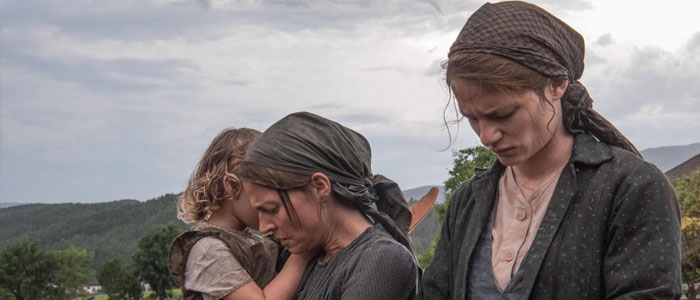
****/****
starring August Diehl, Valerie Pachner, Matthias Schoenaerts, Bruno Ganz
written and directed by Terrence Malick
by Walter Chaw Terrence Malick's A Hidden Life takes its title from George Eliot's Middlemarch:
…for the growing good of the world is partly dependent on unhistoric acts; and that things are not so ill with you and me as they might have been, is half owing to the number who lived faithfully a hidden life, and rest in unvisited tombs.
I've read that over and over since watching the film to realize the more I do, the more it feels cool, soothing against my tongue as a tonic does, or an oath devoutly felt. It's a roadmap to a life lived faithfully to an ideal rather than enslaved to other considerations, venal or material–and the way I think most sensitive, intelligent, moral beings wish to live, had they only the means to do it. Especially if they don't. Freedom shouldn't be something we afford, but rather something we can't afford to be without. A Hidden Life is an ecstatic telling, like Malick's The New World, of the life of a real person. In this case, of Austrian saint Franz Jägerstätter (August Diehl), beatified in 2007; his martyrdom is told here in a manner half like The Passion of Joan of Arc and half an imagistic adaptation of William Cullen Bryant's "Thanatopsis." It's heartbreaking in its beauty, immense in its sadness, and so topical as to be all but unbearable. The tragedy of us is that this story will always be topical.
